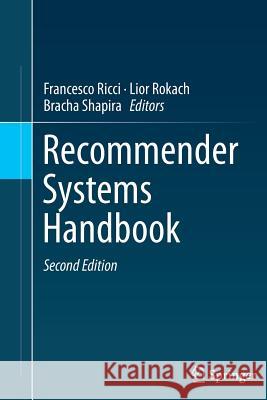Recommender Systems Handbook » książka
topmenu
Recommender Systems Handbook
ISBN-13: 9781489977809 / Angielski / Miękka / 2016 / 1003 str.
Kategorie:
Kategorie BISAC:
Wydawca:
Springer
Język:
Angielski
ISBN-13:
9781489977809
Rok wydania:
2016
Wydanie:
Softcover Repri
Ilość stron:
1003
Waga:
1.39 kg
Wymiary:
23.39 x 15.6 x 5.11
Oprawa:
Miękka
Wolumenów:
01
Dodatkowe informacje:
Wydanie ilustrowane











